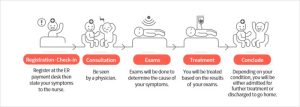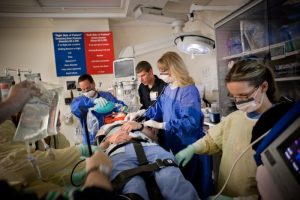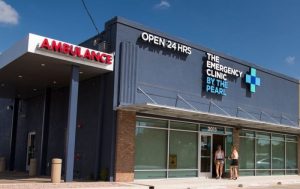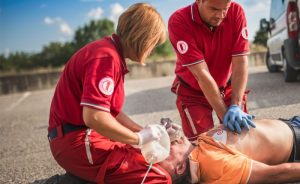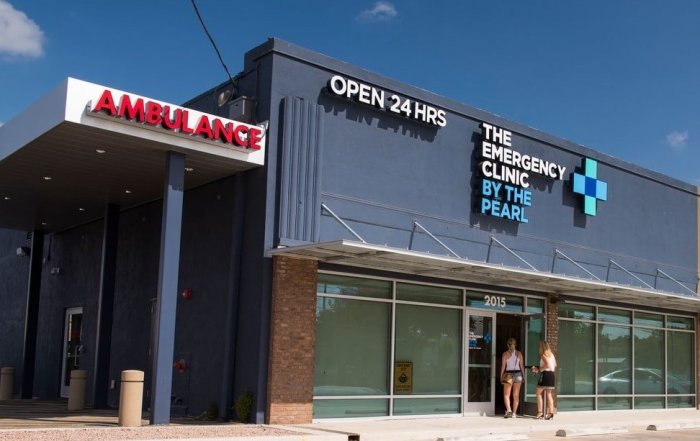
With 24/7 Emergency Care Clinics at the forefront, this paragraph opens a window to an amazing start and intrigue, inviting readers to embark on a storytelling casual formal language style filled with unexpected twists and insights.
When a medical emergency strikes, every second counts. 24/7 Emergency Care Clinics play a vital role in providing immediate medical assistance round the clock. Let’s delve into the world of these clinics and explore the critical services they offer in times of need.
Overview of 24/7 Emergency Care Clinics
When it comes to medical emergencies, access to immediate care is crucial for ensuring the best possible outcomes. 24/7 Emergency Care Clinics provide round-the-clock medical services to address urgent healthcare needs at any time of the day or night. These clinics play a vital role in bridging the gap between regular physician office hours and emergency room visits, offering timely and efficient care when it is needed the most.
Services Offered
- Emergency medical treatment for various conditions such as injuries, infections, and acute illnesses
- X-rays, laboratory tests, and diagnostic services
- Minor surgical procedures
- Prescription medication and follow-up care
Importance of Round-the-Clock Care
/7 Emergency Care Clinics provide a critical lifeline for individuals facing sudden health crises outside of regular healthcare hours. Immediate access to medical professionals can make a significant difference in the outcome of emergencies, reducing the risk of complications and ensuring timely treatment. By offering services around the clock, these clinics help alleviate the burden on emergency departments and provide a more efficient and cost-effective option for urgent medical care.
Key Features of 24/7 Emergency Care Clinics
Emergency care clinics that operate 24/7 offer a range of key features that set them apart from traditional healthcare facilities. These clinics are designed to provide immediate medical attention to patients at any time of the day or night, filling the gap for urgent medical needs outside regular office hours.
Common Features of 24/7 Emergency Care Clinics
- Round-the-clock service: These clinics are open 24 hours a day, 7 days a week, ensuring access to medical care at all times.
- Short wait times: Patients can expect to receive prompt attention and care without the long wait times often associated with emergency rooms.
- Board-certified physicians: Most 24/7 emergency care clinics are staffed with experienced and qualified physicians who can handle a wide range of medical emergencies.
- Diagnostic services: These clinics are equipped with on-site diagnostic tools such as X-rays and lab testing facilities for quick and accurate assessments.
- Treatment for various ailments: From minor injuries to more serious conditions, 24/7 emergency care clinics can provide treatment for a wide range of medical issues.
Comparison with Traditional Healthcare Facilities
- Accessibility: 24/7 emergency care clinics offer convenient access to medical care outside regular office hours, unlike traditional healthcare facilities that may have limited operating hours.
- Efficiency: With shorter wait times and dedicated staff, these clinics can provide faster and more efficient care compared to overcrowded emergency rooms in hospitals.
- Cost-effectiveness: Visiting an emergency care clinic for non-life-threatening emergencies can be more cost-effective than seeking care at a hospital emergency room.
Advantages of Choosing a 24/7 Emergency Care Clinic
- Convenience: Patients can seek medical attention at any time of the day or night, eliminating the need to wait for regular office hours.
- Quality care: With experienced physicians and advanced diagnostic tools, 24/7 emergency care clinics can provide high-quality medical care for a range of conditions.
- Time savings: Patients can avoid long wait times and receive prompt treatment, leading to faster recovery and peace of mind.
Staffing and Expertise
In 24/7 emergency care clinics, the qualifications and expertise of the staff are crucial to providing high-quality care at all times. These clinics ensure round-the-clock availability of medical professionals to address any urgent medical needs that may arise.
Qualifications of Staff Members
- Board-certified emergency physicians with specialized training in handling critical situations.
- Registered nurses with experience in emergency care and triage.
- Emergency medical technicians (EMTs) trained to provide immediate medical assistance.
- Support staff such as medical assistants and administrative personnel to ensure smooth operations.
Round-the-Clock Availability
24/7 emergency care clinics maintain a rotating schedule of healthcare providers to guarantee that there are always experienced professionals available to attend to patients. This includes overnight shifts, weekends, and holidays to ensure continuous care.
Importance of Experienced Healthcare Providers
- Experienced healthcare providers are adept at making quick and accurate assessments in emergency situations, leading to timely interventions.
- Their expertise helps in managing complex cases efficiently, reducing the risk of complications and improving patient outcomes.
- Having skilled professionals on staff enhances the overall quality of care and instills confidence in patients seeking urgent medical attention.
Equipment and Facilities
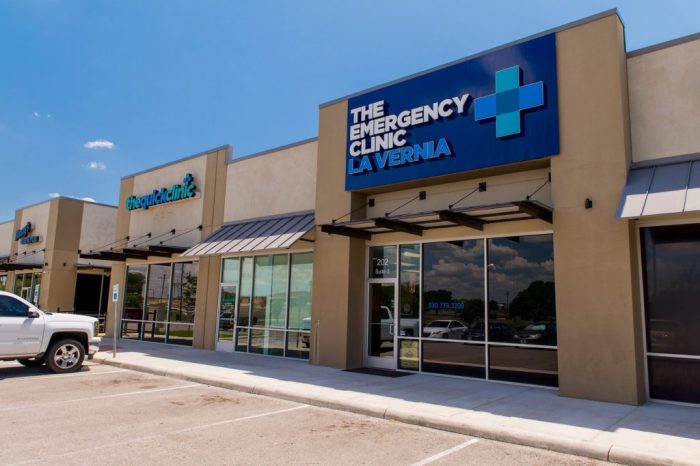
In 24/7 emergency care clinics, having the right equipment and facilities is crucial to providing efficient and effective medical care to patients in need.
Essential Medical Equipment
- X-ray machines for immediate imaging diagnostics
- Defibrillators for handling cardiac emergencies
- Blood pressure monitors and ECG machines for vital sign monitoring
- Suture kits and wound care supplies for minor injuries
- Oxygen tanks and respiratory support equipment for breathing difficulties
Facilities and Infrastructure
- Spacious waiting areas for patients and their families
- Dedicated treatment rooms equipped with medical supplies
- Pharmacy on-site for quick access to medications
- Laboratory for immediate test results
- Ambulance services for seamless patient transfer
Handling a Wide Range of Medical Emergencies
Having well-equipped clinics ensures that medical professionals can promptly and effectively address a variety of medical emergencies such as heart attacks, strokes, injuries, and respiratory distress. With the right equipment and facilities in place, clinics can provide life-saving care to patients in critical conditions.
Patient Experience
When visiting a 24/7 emergency care clinic, patients can expect prompt attention and efficient care to address their medical needs. The focus is on providing high-quality treatment in a timely manner, ensuring that patients receive the necessary care as quickly as possible.
Wait Times
- Typical wait times at 24/7 emergency care clinics are significantly shorter compared to traditional emergency rooms in hospitals.
- Patients can expect to be seen by a healthcare provider much faster, leading to quicker assessment and treatment.
- With streamlined processes and dedicated staff, the goal is to minimize wait times and ensure that patients receive care promptly.
Patient Satisfaction
- Patient satisfaction is a top priority in emergency care settings, including 24/7 clinics.
- Staff members are trained to provide compassionate care and support to patients during their visit.
- Feedback from patients is taken seriously, and efforts are made to improve the overall experience based on their input.
- By focusing on patient-centered care, emergency care clinics aim to ensure that patients feel heard, valued, and well taken care of during their time of need.
Cost and Insurance
In terms of cost and insurance, it is essential to understand the financial aspects associated with receiving care at a 24/7 emergency care clinic. Let’s delve into the typical costs, insurance coverage, and financial assistance options available for patients without insurance.
Typical Costs
- Emergency care services at a 24/7 clinic can vary in cost depending on the level of care needed.
- Basic treatments like consultations, diagnostic tests, and minor procedures may have set prices.
- For more complex treatments or surgeries, the costs can be higher.
Insurance Coverage
- Most insurance providers cover emergency care services, including those received at 24/7 clinics.
- Patients with insurance typically have to pay a co-payment or a percentage of the total bill as determined by their insurance plan.
- It is crucial to check with your insurance provider to understand your coverage and any out-of-pocket expenses.
Financial Assistance Options
- For patients without insurance, 24/7 emergency care clinics may offer financial assistance programs or discounted rates based on income levels.
- Patients can inquire about payment plans or sliding scale fees to make the cost of care more manageable.
- Some clinics may also have partnerships with local organizations or charities to help cover medical expenses for those in need.
Importance of Emergency Care

Immediate access to emergency care is crucial in saving lives as it can make a significant difference in critical situations where every second counts. Whether it’s a heart attack, stroke, severe injury, or any life-threatening condition, quick medical attention can prevent serious complications and even death.
Examples of Situations Requiring Quick Medical Attention
- In cases of heart attack, timely treatment can help restore blood flow to the heart muscle, preventing further damage and increasing the chances of survival.
- For stroke victims, rapid medical intervention can minimize brain damage and improve recovery outcomes.
- Severe injuries from accidents or trauma need immediate care to control bleeding, prevent infection, and stabilize the patient’s condition.
Role of 24/7 Emergency Care Clinics
Emergency care clinics that operate 24/7 play a vital role in the broader healthcare system by providing accessible and timely medical assistance outside regular hospital hours. These clinics serve as a crucial link between primary care providers and hospital emergency departments, offering a quick response to urgent medical needs in the community. By delivering efficient emergency care round the clock, these clinics help alleviate pressure on overcrowded hospitals and ensure that patients receive prompt attention when time is of the essence.
In conclusion, 24/7 Emergency Care Clinics stand as pillars of support in times of crisis, ensuring access to timely and efficient medical care. With a focus on patient well-being and quick response, these clinics play a crucial role in the healthcare system, saving lives one emergency at a time.
Question & Answer Hub
What makes 24/7 Emergency Care Clinics different from traditional healthcare facilities?
24/7 Emergency Care Clinics provide round-the-clock access to medical care for urgent situations, ensuring immediate assistance at any time of the day.
Are there any financial assistance options available for patients without insurance?
Some 24/7 Emergency Care Clinics offer financial assistance programs or discounted rates for uninsured patients to ensure they receive the necessary medical care.
How do 24/7 Emergency Care Clinics prioritize patient satisfaction?
These clinics focus on reducing wait times, providing quality care, and ensuring a seamless patient experience to prioritize patient satisfaction in emergency situations.

